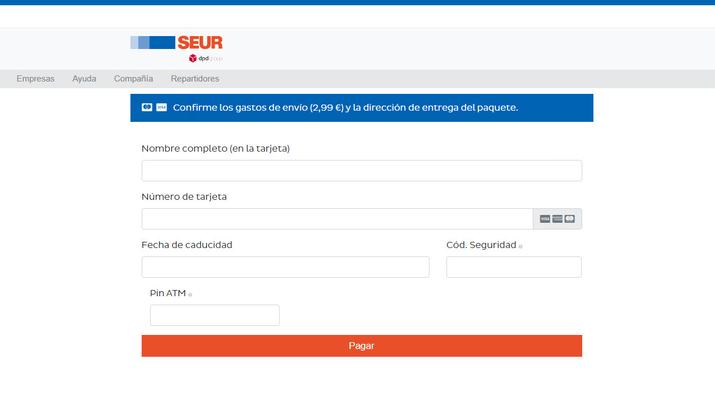
There are more and more waves of phishing or smishing attempts that are appearing in our country. What these waves are looking for in most cases is to make us “sting” with some kind of hook so that we enter a false web page created for the occasion, and in it we enter our bank details. Cybercriminals have done it again to this case with Seur, and it is that the customs scam has reappeared again.
This scam has been discovered again by the National Cybersecurity Institute of Spain (or INCIBE), an entity that is usually very attentive to all these scams to put a stop to them and warn the population of the danger they entail. This entity in fact has its own telephone line so that we can consult any type of doubt about cybersecurity.
Be careful with this SMS from Seur
The danger of this type of smishing scam is that they impersonate recognized entities. Sometimes, it may be that the entity that replaces is Correos or even a bank, although in the case that concerns us today it is an impersonation of Seur, one of the most important parcel companies in our country. As you will see below, the scam is really successful, so it is very easy to fall for it if we are not careful.
The scam begins with an SMS that the potential victim receives on their mobile phone. This SMS to which we refer contains the following message: “your package is still held in customs for non-payment of fees (€2.99) you can pay them at the following link”. It is not ruled out that there are more messages that supplant other entities or with different texts. It is true that the message refers to a supposed package in customs and not everyone is going to find themselves in this situation, but it may well happen that the victim is waiting for a real package and that it has to go through customs.
The URL that accompanies the message will take us to a portal where we will see typical identifying signs of Seur, such as the logo, the sections that we can find on its website and even the same colors that it uses. The page in question will ask us to enter our full name, our credit or debit card, the expiration date and its security code and even the pin code that we have set. This page, of course, belongs to cybercriminals and if we enter the information they ask for, we will be handing it to them on a silver platter.

Do this to protect yourself from these scams
INCIBE once again gives us a series of tips so that we do not fall for this type of recurrent scams. Keep in mind that most of them arrive with a different “look”, but in essence they are all the same, since what they normally seek is to access our banking information or our personal data in one way or another. The advice that INCIBE gives us to avoid falling into them are the following:
- Do not open SMS from unknown users or those that you have not requested. Delete them directly.
- Under no circumstances answer any of these SMS.
- Be very careful when you click on a link, even if it comes from a known contact
- If the SMS you receive has a link that takes you to download an app, don’t download it. These types of applications are usually always infected by some type of malware, so it is convenient that you do not access to install them in any case.
- If you have any doubts about one of these SMS, it is advisable that you go to the entity to ask about the origin of the message.